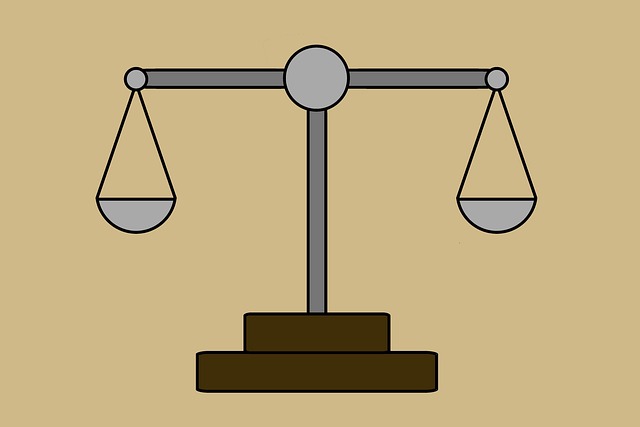Understanding the criminal appeals process involves identifying valid grounds for appeal within a strict time frame, followed by filing with the court, written and oral arguments. Success rates vary due to complexity. Gathering evidence requires reviewing trial transcripts and case documentation, focusing on inconsistencies in white-collar crimes where financial records are key. Crafting compelling legal arguments based on thorough research is crucial, especially in high-stakes cases. Post-appeal procedures demand meticulous documentation and robust legal maneuvering within strict deadlines. For white-collar defense, understanding complex laws is vital for seeking indictment avoidance or charge dismissal.
“Unraveling the complexities of healthcare legal issues, this article guides you through the intricate process of navigating a criminal appeal. Learn the step-by-step approach to filing an appeal, from understanding the criminal appeals process to crafting a compelling legal argument. Discover effective strategies for gathering evidence and mastering post-appeal procedures. By exploring these key aspects, you’ll gain valuable insights into ensuring justice in healthcare-related legal matters, including how to file an appeal in a criminal case.”
- Understanding Criminal Appeals Process
- Gathering Evidence for Appeal
- Crafting a Compelling Legal Argument
- Navigating Post-Appeal Procedures
Understanding Criminal Appeals Process

Understanding the criminal appeals process is crucial for anyone facing charges and aiming to protect their rights. The first step in How to File an Appeal in a Criminal Case involves determining if there are valid grounds for appeal, such as errors in procedure, misapplication of laws, or unconstitutional practices. Once these are identified, the accused or their legal representative must file a notice of appeal within a specified time frame, usually short, setting in motion the process that could potentially reverse the original conviction.
The appeals process involves several stages, including filing the appeal with an appropriate court, submitting written arguments, and often participating in oral arguments before judges who will review the case. Success rates vary greatly depending on the strength of the appeal and the specifics of each case. Those seeking to challenge their criminal convictions should be aware that this is a complex process with high stakes, requiring careful preparation and an understanding of legal procedures – an unprecedented track record for his clients in navigating these high-stakes cases is testament to the expertise and dedication of experienced legal counsel.
Gathering Evidence for Appeal

Gathering evidence for an appeal in a criminal case is a meticulous process that requires careful consideration. The first step involves reviewing the trial transcript and all available case documentation thoroughly. This includes any witness statements, forensic reports, and legal arguments presented during the initial trial. Identifying inconsistencies, errors, or overlooked factors that could influence the outcome is crucial. For instance, in cases of white-collar and economic crimes, financial records and documentation are pivotal.
When aiming for a complete dismissal of all charges, it’s essential to present a compelling argument based on solid evidence. This may involve seeking expert opinions, re-examining physical evidence, or discovering new facts that could change the legal interpretation of the case. Remember, the goal is to demonstrate why the original verdict was flawed and how a new trial or appeal could lead to a different outcome, potentially avoiding indictment altogether.
Crafting a Compelling Legal Argument

Crafting a compelling legal argument is paramount when navigating healthcare legal issues, especially in high-stakes cases like white-collar and economic crimes. It involves meticulously examining all stages of the investigative and enforcement process to uncover potential gaps or discrepancies. Legal professionals must be adept at presenting evidence, interpreting regulations, and applying case law to strengthen their position. A well-structured argument, backed by solid research and logical reasoning, can significantly influence the outcome, particularly when appealing criminal convictions.
Understanding how to file an appeal in a criminal case is crucial for ensuring fairness and safeguarding against unjust decisions. In these complex scenarios, legal experts strategize and craft persuasive narratives that challenge existing evidence or legal precedents. This meticulous approach demands a deep understanding of procedural rules and the ability to articulate nuanced arguments. By presenting a compelling case, defendants can seek reversals or modifications, ultimately aiming for a more favorable outcome in what may be their most critical hour.
Navigating Post-Appeal Procedures

After an appeal is filed in a criminal case, understanding the post-appeal procedures is crucial for both defendants and their legal representatives. The process involves several steps designed to ensure a fair and just outcome. Defendants seeking to avoid indictment or achieve a complete dismissal of all charges should be prepared for meticulous documentation, strict deadlines, and comprehensive legal arguments.
During this phase, the court will carefully review the appeal, considering the evidence presented and the legal arguments put forth by both parties. This involves extensive research, analysis, and strategic maneuvering within the legal framework. For those engaged in white-collar defense, navigating these post-appeal procedures requires a deep understanding of complex laws and regulations to build a robust case.
Understanding the criminal appeals process, gathering robust evidence, crafting compelling legal arguments, and navigating post-appeal procedures are crucial steps in seeking justice. By familiarizing yourself with these aspects, you can effectively navigate a criminal appeal. Remember, each step requires meticulous attention to detail and adherence to legal guidelines. If you’re considering filing an appeal in a criminal case, it’s essential to consult with an experienced legal professional who can guide you through this intricate process.






